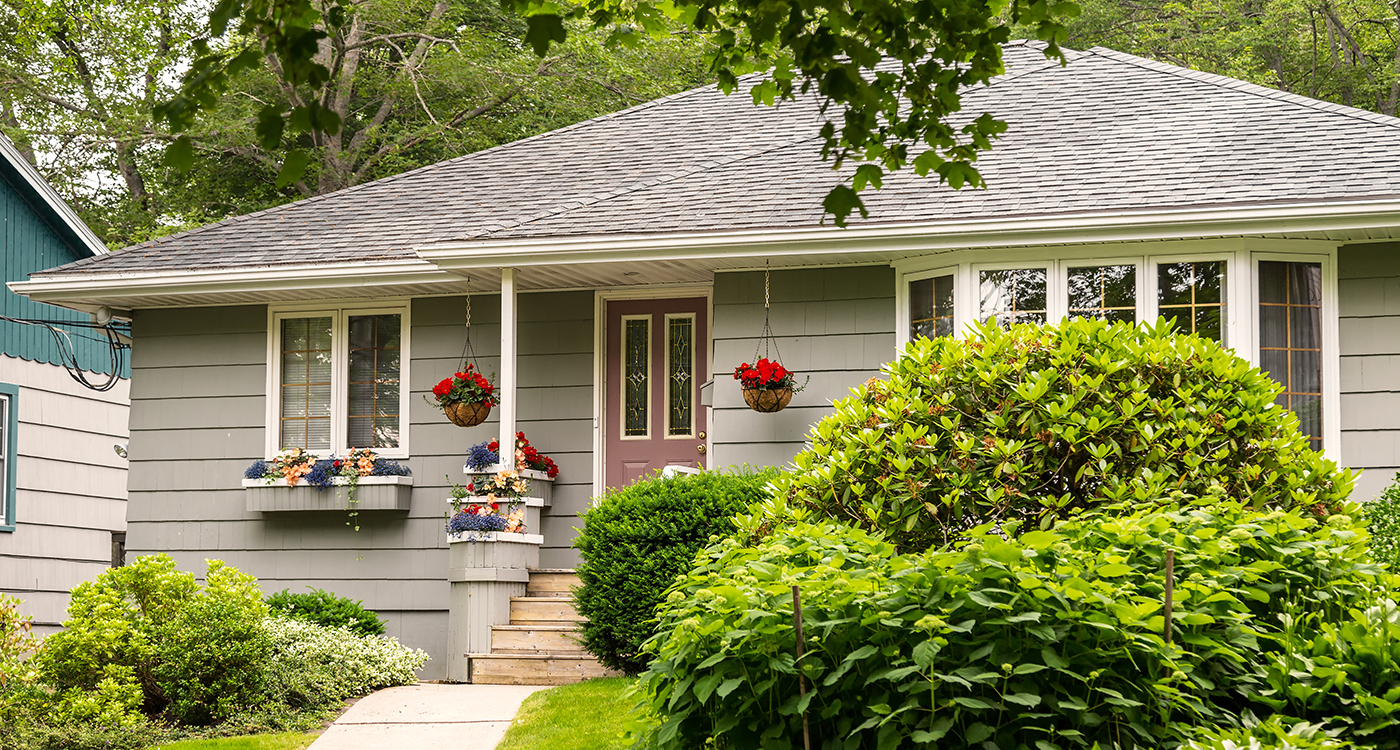What Is an iBuyer? Why and How to Sell to an iBuyer
Learn more about the iBuyer process and see if it's right for you.


Written by Tali Bendzak on November 26, 2019
What is an iBuyer?
An iBuyer is a company that buys homes almost instantly by relying on technology to determine a market-based cash offer. iBuyers complete the purchase transaction online, often sight unseen, which means the homeowner gets to sell their home in a quick sale while skipping a lot of steps in the traditional home-selling process.
The 'i' in iBuyer often refers to 'instant' buyers. iBuyers purchase homes directly from the owners. The homeowner doesn't have to list the home, stage it, show it, or do any marketing whatsoever. Instead, the homeowner just tells the iBuyer the home's age, size, condition and zip code. The iBuyer uses data and algorithms to predict the home's future value and presents the homeowner with an offer based on their calculations.
Some iBuyers can get an all-cash offer to a home seller in less than 24 hours. If the homeowner accepts the offer, the deal can close in a couple of days. The transaction often happens entirely online.
Companies that buy houses for cash
The biggest iBuyers in the market today, based on the volume of real-estate transactions they do, are Opendoor and Offerpad. Other players in the iBuyer space are Keller Offers, Upnest, Flyhomes, Knock and RedfinNow.
iBuyers aren't in every market in the U.S., but they are expanding. They tend to choose areas where the housing market is very active and has a lot of homes in the $250,000 range.
Avoid iBuyer scams
There are plenty of reputable investors buying houses, but do your homework before choosing an iBuyer. Make sure you're dealing with a reliable business and don't work with a company that asks for money upfront. No money should change hands until the closing day of the sale, and the transaction should be handled by a third-party title company.
iBuyers are not house flippers
iBuyers are not house flippers. They don't look for distressed properties that need a ton of work. And they're not the mom-and-pop businesses who hang up those handwritten signs at intersections that say, “We Buy Houses In Any Condition.'
iBuyers are large corporations that look for homes already in good condition that need a minimal amount of work to sell. Most iBuyers take the properties they buy, fix them up and list them again to sell for a profit. The iBuyer business model is based on selling a lot of homes fast, not selling a few homes for a significant profit. They're about volume, not margin.
How does iBuyer pricing work?
iBuyers use an automated valuation model (AVM) to determine what a house is worth. AVM is software that iBuyers use to process a ton of data about a home to come up with an offer price.
iBuyers take personal preferences out of a home sale and replace it with data. iBuyers use a mountain of technology-driven data to determine what a house is worth. Numbers drive the price they offer, not a gut feeling about the color of the shutters or the type of shrubs in the yard.
How they get their price
In a traditional sale, a home's value is calculated by an appraiser looking at similar homes nearby that have recently sold. This is called a Comparative Market Analysis, also referred to as pulling comps. The problem with pulling comps is that no two homes are identical, so the price must be adjusted to account for the differences. This adjustment takes a human appraiser a week or so to do, but a computer can analyze those features and make the price adjustments a whole lot faster.
iBuyers lean heavily on the computer to do the work, and that's how they come up with a fair market value price for a house so quickly.
There are two types of prices you may get from an iBuyer:
Immediate offer: This is the fastest option, where an iBuyer uses data points from comps to come up with a purchase price without seeing the home in person. The algorithm handles it all.
Adjusted offer: An iBuyer sends a human appraiser to visit the home in person to fine-tune the number they got from the algorithm. The computer crunches the numbers and gets an initial price, and a human evaluator refines the number based on what they see in the home.
How much are iBuyer fees?
Fees for selling your home to an iBuyer range from 5 to 9 percent.
Note that outside of this service fee, if your home needs repairs to make it move-in ready for the next owner, an iBuyer deducts the cost of those repairs from the cash offer. As a seller, you would pay these same costs if you listed your home the traditional way, so you end up paying for the repairs on top of the agent's commission. So you are paying for repairs one way or another whether you list the home traditionally or sell it to an iBuyer. When it's all said and done, studies show the final sale price for some iBuyers is less than 1 percent different than selling traditionally.
What do you get for the fees you pay iBuyers?
Homeowners are paying for the convenience of selling without the stress of listing a home. Because listing a home means you may have to:
- Show the home
- Host an open house or two
- Deal with an uncertain timeline as to when the home will sell
- Move into temporary housing if your home sells before you have bought another one
- Pay two mortgages if you buy a new house before you sell this one
- Risk a deal falling through and having to relist your house
- Delay the sale of your home while you make repairs
The old adage that time is money is never truer than when you are selling your house. Any hiccup in the process can cost you money because it can delay your moving plans while the deal swings by a thread. Selling to an iBuyer buys you peace of mind by giving you a definite sale date. There are no contingencies that could kill the deal, no 'maybe I changed my mind,' and no last-minute requests for repairs before you sell the house.
Do iBuyers pay agent commission?
Yes, sellers fund agent commission on iBuyer transactions just as they do on traditional home sale transactions. On a typical home sale, both the seller and buyer are represented by an agent, and the seller pays an average of 5-6 percent of the home's sale price to their listing agent, which is split with the buyer's agent. Sometimes a referring agent also takes a portion.
How are home improvements factored in the pricing?
iBuyers follow varied business models. Those that make immediate offers might charge a standard rate for home improvements while iBuyers that make adjusted offers evaluate your property and provide a list of necessary home improvements. Typically, the home improvement costs are deducted from your proceeds at closing and the ibuyer then completes the updates. With a traditional home sale, improvements are upfront costs.
Are iBuyer prices negotiable?
iBuyer offers are usually non-negotiable. iBuyers are going for volume and speed, so there's not much room or time for back and forth on the price. The whole point of iBuyers is streamlining the process by getting rid of the haggling step.
Is iBuyer pricing competitive?
The pricing can vary depending on who you work with. A Marketwatch investigation into other iBuyers found homeowners who took iBuyer offers from Knock, Opendoor and Offerpad got an average of 11 percent less for their homes than homeowners who sold their property the traditional way — with an agent on the open market.
Why sell your house to an iBuyer?
You have more control over your selling timeline
You have no idea how long your house will sit on the market awaiting a buyer, so if you want to get your house sold fast, an iBuyer is the way to go.
Some reasons you need to control the timeline of a home sale include:
- you're relocating for a job
- you're getting a divorce
- your home needs more repairs than you can afford
- you're selling a rental property that has tenants living in it
- your home is lingering on the market, unsold
You need to help alleviate the stress of selling
Selling a house the traditional way can be an unpredictable hassle. The open houses, showings, and last-minute cleanups before strangers traipse through your house and critique the color you painted your kitchen can be enough to make you pull your hair out.
In addition to a competitive all-cash offer, iBuyers also take on the burden of repairs, marketing and showing of the home.
You want the certainty of an all-cash offer
You'll know exactly how much your house will sell for very early in the process, and you won't need to worry about the deal falling through because the buyer doesn't get their financing. Taking an iBuyer offer lets home sellers focus on buying their next home, and it relieves the anxiety of not knowing how much they will have to spend.
What is the process for selling to an iBuyer?
There are many iBuyer businesses, and they all will buy your home for cash, fast. The process can vary by company, though. Here's the general process of selling your home to an iBuyer.
- You request an offer online. You'll fill out a short form online with questions about your home's features, updates and condition. You'll submit photos.
- You'll get an offer. The iBuyer will crunch the numbers and give you an offer for your home.
- You accept or decline the offer. You decide if you want the price you've been offered. If you do, you will sign a purchase and sale contract. You may need to get a home evaluation to finalize the offer. You can do this on your own or get a local real estate agent to help you determine whether the offer and terms of the contract are competitive with the open market.
- You may need to get a home assessment. If your iBuyer requires an in-person home assessment, an evaluator employed by the iBuyer will come to your house and do an inspection. You'll get a list of updates your property needs, and the final offer from the iBuyer will reflect the cost of those repairs.
Whatever your approach to selling, it's always good to have an understanding of the market before you accept an offer. Claim your home to check and influence your Zestimate and consider all of your selling options.
Top image from Shutterstock.
Ready for a new address?
Get an instant cash offer or list with a local partner agent.
Explore selling optionsRelated Articles
Sell your home with a winning strategy
Here’s how to maximize your home sale with the right selling plan.

Build a smart selling plan
Talk to your agent about their marketing approach - especially online - to ensure you’re getting the best possible price for your home.



